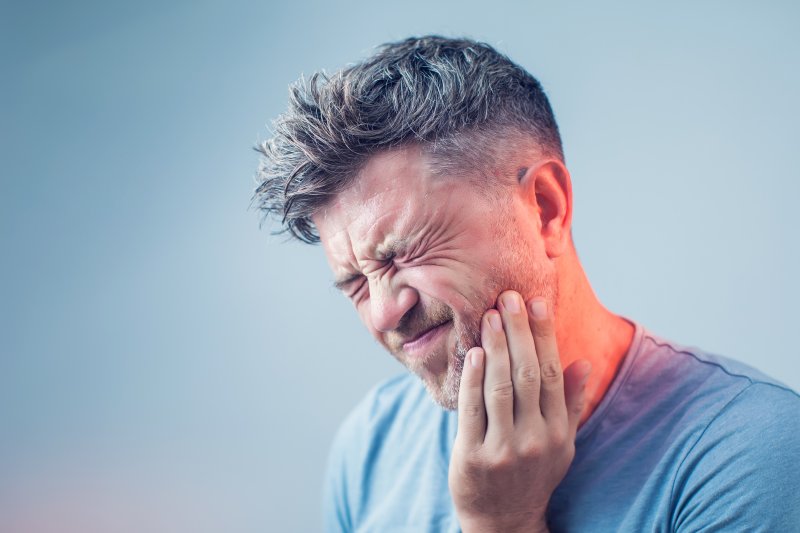
Denture sores are a troublesome nuisance, but they should be rare. While they are most likely to develop when you are still adjusting during the first few weeks of receiving a new set of dentures, they may also mean that your jawbone has changed and your denture needs an adjustment to fit properly again. Here’s a quick overview of denture sores including what causes them, how to get rid of them, and when to see a dentist.
What Are Denture Sores?
Denture sores form on the gums due to the appliance rubbing or cutting into the soft tissue. While this problem is likely to go away as you get used to them if it began when you started wearing dentures, it can also result from dentures that don’t fit properly sliding about too loosely in the mouth. These sores can be across the gums or limited to a few specific areas.
Where Do Denture Sores Come From?
If your dentures are giving you sores or irritation, the most likely reasons are that they are new and you haven’t gotten used to wearing them yet or that your jawbone has changed shape and your appliance no longer fits properly. In either case, the denture making contact with and rubbing against tissues that aren’t used to it can cause them to become irritated or inflamed. If your dentures are not fitting right, the best course of action is to consult with your dentist about getting a suitable adjustment such as a reline.
In some cases, food particles can get stuck between the denture and the gum, which creates a breeding ground for harmful bacteria that can cause sores and irritation. This can often be addressed with a little denture adhesive to seal the gap. In other cases, bacteria can accumulate on dentures that are not receiving proper care and maintenance, which can often be resolved with improved hygiene.
What Home Remedies Can Treat Denture Sores?
Luckily, there are a few home remedies that can help you stay comfortable as you get used to your dentures or until you can see your dentist. These include:
- Using a topical anesthetic to relieve pain and discomfort
- Rinsing your mouth with salt water to help clean and soothe sore areas
- Taking over-the-counter pain medication to reduce swelling and discomfort
- Removing and soaking your dentures overnight as instructed to help your mouth and your dentures stay clean.
If you have large and painful denture sores that you think may be infected or if they are still there after two weeks, you may need to see a dentist for treatment. This can help you resolve the issue and get back to living life more comfortably.
About the Practice
Dental Center of Lakewood provides the finest oral health services to the community of Dallas, TX. Led by Drs. Travis Spillman and Jacquelyn Green, the staff ensures that each patient receives personalized and holistic care that allows them to live comfortably and smile beautifully. Areas of expertise include general, restorative, cosmetic, and emergency dentistry as well as denture services. If you are concerned about persistent denture sores, contact the office online or dial (214) 823-5253.
